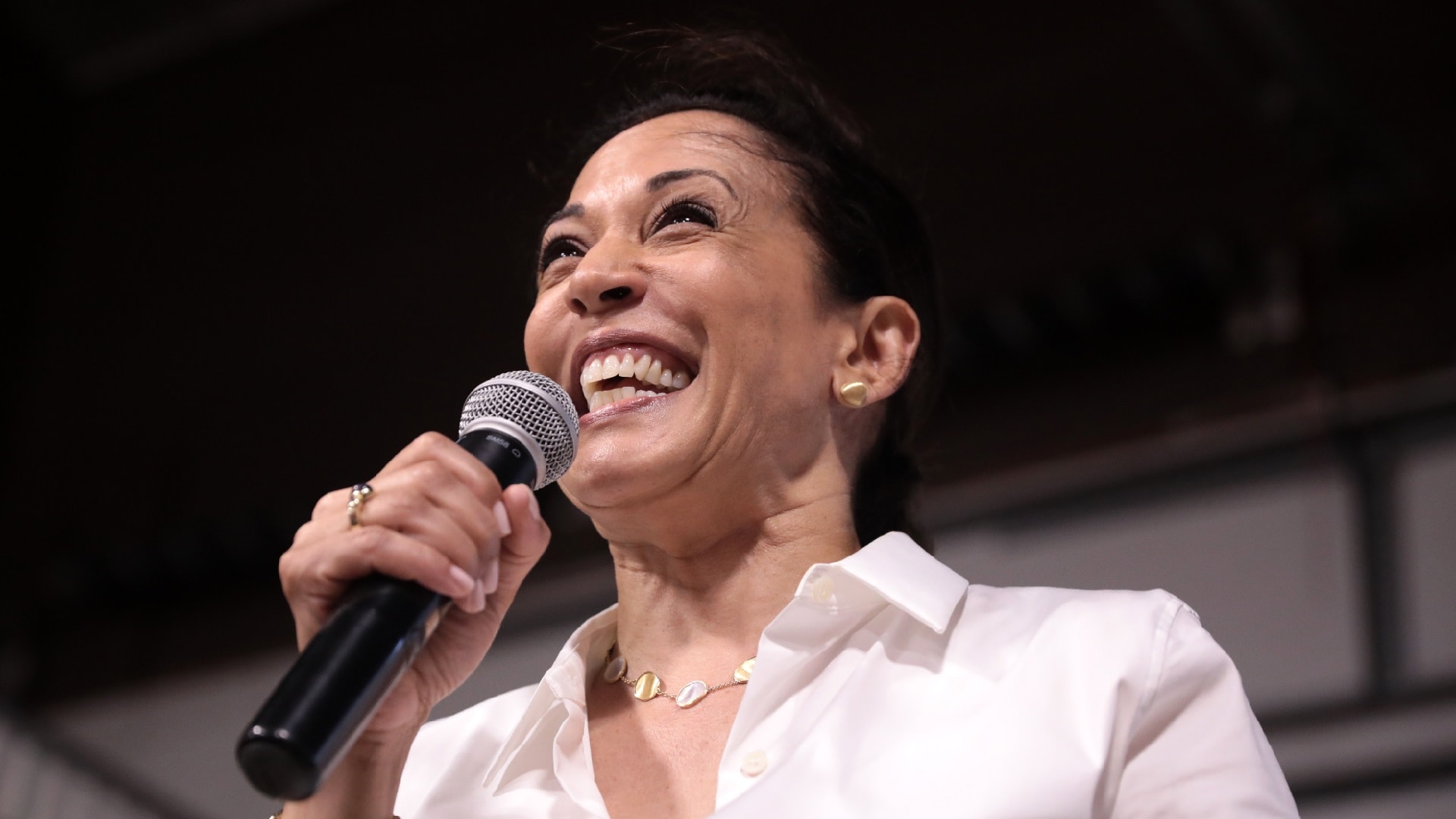Vice President Kamala Harris continues to suffer from consistently poor approval ratings. According to FiveThirtyEight, the average of polls has her disapproval rating at 46.5 percent, compared to an approval rating of 40.6 percent, as of February 23.
That’s actually stronger than Harris’ ratings at other times during her vice presidency, which reached as high as 55.6 percent earlier this year.
Kamala Harris: Conservatives Plan Their Strategy
With President Biden likely to run for re-election, Harris probably won’t become the Democrats’ standard bearer in the next cycle.
But eventually, she may be, and some conservatives are trying out a potential attack line against her.
An op-ed published last week on the American Enterprise Institute’s website and RealClearPolicy, AEI Rowe Fellow in poverty studies Matt Weidinger, describes Harris as “the $21 trillion woman.”
Comparing Harris to the fictional Six Million Dollar Man, the $21 trillion is a reference to something called the Monthly Economic Crisis Support Act.
That was a bill introduced in Congress in the early pandemic days of March 2020, by Harris and cosponsors that included Sen. Bernie Sanders (I-VT) and Sen. Ed Markey (D-MA).
The bill would have sent Americans “crisis payments” every month that the pandemic emergency declaration was in effect, and for three months afterward.
The pandemic emergency will officially end this spring.
“The legislation never advanced, but if it had most Americans would have received $2,000 checks each month retroactive to March 2020 and continuing through this coming August,” Weidinger writes. Therefore, had the legislation passed, it would have cost the Treasury a massive amount of money- the “$21 trillion” referred to in the AEI piece.
“Up to two parents and three children per household would have been eligible, for a maximum of $10,000 per month or an astonishing $120,000 per year. That’s nearly double the US median household income of $67,521 in 2020. It even exceeds the risible guaranteed annual income of $97,000 recently proposed by the San Francisco Reparations Advisory Committee.”
He went on to argue what a disaster it would have been if the Monthly Economic Crisis Support Act had become law.
“Harris’ legislation, which would have doubled the federal budget, included no offsetting spending cuts, meaning it would have sent deficits spiraling upward at the bionic pace of $1 trillion every other month. Indeed, under her proposal the current $31 trillion federal debt would have skyrocketed to over $50 trillion, without even considering its effects on inflation and interest rates.”
The most important phrase in the op-ed is this one: “The legislation never advanced.”
Harris introduced the bill in March of 2020 when Trump was president, and there was never any possibility that it would become law.
This is the type of legislation that is introduced more to send a message — most likely about the insufficiency of what the opposite party proposed — than to actually be enacted.
Once Kamala Harris became vice president, she made no attempt to pass the Monthly Economic Crisis Support Act or anything resembling it. If Harris has some type of secret plan to re-introduce the idea, she hasn’t done so.
What Actually Was Passed
The Biden Administration passed the American Rescue Plan Act in March of 2021, which included one stimulus check for most Americans as well as an expanded child tax credit, but it did not include anything like the Monthly Economic Crisis Support Act, and the Biden Administration in the two years since has resisted efforts to revive direct stimulus checks. Some progressive elected officials have proposed that periodically, but it’s never advanced far.
Of course, the same month that Harris’ legislation was introduced, Congress passed the CARES Act, the Trump-era COVID-19 rescue package, which included a direct check for most Americans.
So it might be hard for Trump or another Republican to argue against direct payments, when they passed them the same month, with another one passing later that year.
Furthermore, if political opponents in some future election decide to go after Harris for having proposed monthly checks for the duration of the pandemic, there’s a chance some part of the electorate might conclude that was a good idea.
Future criticism of Harris’ tenure as vice president will likely focus on things she actually did, as opposed to things she only proposed doing.
MORE: Are We Watching the End of Donald Trump?
MORE: Liz Cheney: Could She Join the Democratic Party?
MORE: Liz Cheney: The Next President of the United States?
Expertise and Experience: Stephen Silver is a Senior Editor for 19FortyFive. He is an award-winning journalist, essayist and film critic, who is also a contributor to the Philadelphia Inquirer, the Jewish Telegraphic Agency, Broad Street Review, and Splice Today. The co-founder of the Philadelphia Film Critics Circle, Stephen lives in suburban Philadelphia with his wife and two sons. Follow him on Twitter at @StephenSilver.

